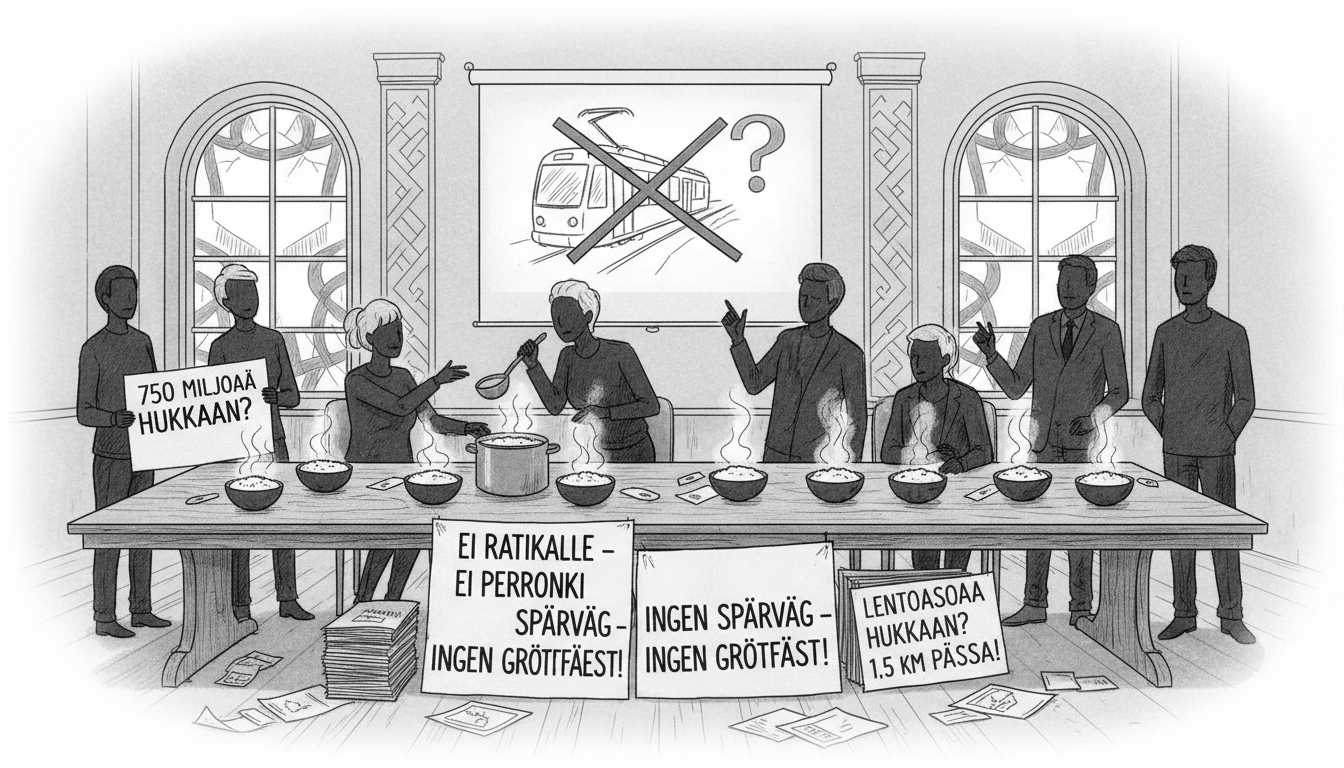A heated political battle over Vantaa's controversial tram project reached its climax as city councilors debated while opposition parties served rice porridge outside city hall. The unusual protest method highlighted deep divisions over the 750 million euro infrastructure project that has polarized Finland's fourth-largest city.
Three opposition parties – the Finns Party, Christian Democrats, and Centre Party – organized the porridge serving during Monday's decisive council meeting. Their timing raised eyebrows as the council session began at 1 PM while the protest feeding started two hours later at 3 PM. This scheduling mismatch prompted questions about the protest's effectiveness when critical decisions might already be underway.
Kai-Ari Lundell, chair of the opposition G12 group, defended the timing. He explained they considered starting before the meeting but wanted to accommodate people coming from work. Lundell insisted the tram decision wouldn't be finalized before the porridge serving, anticipating lengthy debates on both the tram project and next year's budget.
The tram controversy centers on several key issues that have drawn public criticism. Project costs have increased by 105 million euros to reach 750 million euros total, with Vantaa responsible for 541 million euros of this amount. The route planning has also faced scrutiny, particularly the terminal stop location that would leave passengers 1.5 kilometers from the airport terminal building at Aviapolis train station.
This infrastructure debate reflects broader tensions in Finnish urban development between ambitious public transit projects and fiscal responsibility. Vantaa's situation mirrors challenges seen in other Nordic cities where major transport investments face increasing scrutiny over costs and practical benefits. The porridge protest itself draws from Finnish political traditions where food often serves as both literal and symbolic nourishment during important democratic processes.
Council members face pressure from multiple directions. The city administration has called for re-evaluating the airport terminal stop within six months, requiring negotiations with airport operator Finavia. Meanwhile, opposition groups claim growing support within the council, pointing to new tram critics from the Coalition Party and potential defections from other groups.
The final council decision could set important precedents for how Finnish municipalities handle major infrastructure projects amid rising construction costs and environmental concerns. International observers watch these Nordic transport debates closely as similar light rail projects face scrutiny worldwide.
What makes this political drama particularly Finnish is the combination of technical infrastructure debate with traditional food culture. Rice porridge, a staple in Finnish cuisine, becomes political theater in this context. The protest method reflects how Nordic political culture often blends practical concerns with symbolic actions that remain grounded in everyday life.
The outcome will affect not only Vantaa residents but also set patterns for how Finnish cities approach major public works projects. With construction costs rising across the Nordic region, the balance between urban development ambitions and fiscal responsibility becomes increasingly delicate.

